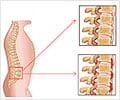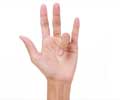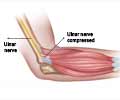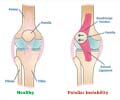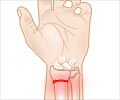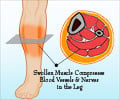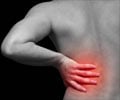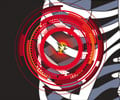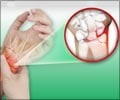Are you taking Diclofenac ? Are you aware of the dangers of combining Diclofenac with certain foods, herbs, or alcohol? Drug-food-interactions are seldom discussed but can lead to undesirable side effects and potentially diminish the efficacy of the medication.
FDA. US Food and Drug Administration. Avoid food and drug interactions.
Go to source).
Tobacco: Using tobacco products like cigarettes along with diclofenac may increase the risk of gastrointestinal (GI) side effects including peptic ulcers and GI bleeding (2✔ ✔Trusted Source
wellrx.com. DICLOFENAC SODIUM ER or VOLTAREN-XR Food, Alcohol, Supplements and Drug Interactions.
Go to source).
National Institute on Alcohol and Alcoholism. (2014) Harmful Interactions: Mixing Alcohol With Medicines.
Go to source).
References
1. FDA. US Food and Drug Administration. Avoid food and drug interactions. Retrieved on 9th June 2022 from: https://curehht.org/wp-content/uploads/2017/11/Food_and_Drug_Interactions_FDA.pdf
2. wellrx.com. DICLOFENAC SODIUM ER or VOLTAREN-XR Food, Alcohol, Supplements and Drug Interactions. Retrieved on 9th June 2022 from: https://www.wellrx.com/diclofenac%20sodium%20er/lifestyle-interactions
3. National Institute on Alcohol and Alcoholism. (2014) Harmful Interactions: Mixing Alcohol With Medicines. Retrieved on 10th June 2022 from: https://www.niaaa.nih.gov/publications/brochures-and-fact-sheets/harmful-interactions-mixing-alcohol-with-medicines
4. FDA Approved Drug Products: Zorvolex Diclofenac Oral Capsules. Retrieved on 10th June 2022 from: https://www.accessdata.fda.gov/drugsatfda_docs/label/2014/204592s002s004lbl.pdf
Diclofenac Interactions with Food and Herbs
Milk: Take diclofenac tablets or capsules with milk or food. It may reduce stomach upset (1✔ ✔Trusted SourceFDA. US Food and Drug Administration. Avoid food and drug interactions.
Go to source).
Tobacco: Using tobacco products like cigarettes along with diclofenac may increase the risk of gastrointestinal (GI) side effects including peptic ulcers and GI bleeding (2✔ ✔Trusted Source
wellrx.com. DICLOFENAC SODIUM ER or VOLTAREN-XR Food, Alcohol, Supplements and Drug Interactions.
Go to source).
Diclofenac Interactions with Alcohol
Intake of diclofenac with alcohol may result in unwanted side effects such as ulcers, stomach bleeding, and liver damage (3✔ ✔Trusted SourceNational Institute on Alcohol and Alcoholism. (2014) Harmful Interactions: Mixing Alcohol With Medicines.
Go to source).
When and How to Take Diclofenac
- Diclofenac comes as a tablet or liquid-filled and hard gelatin capsule or as a powder for solution (to be mixed with water) and it is to be taken by mouth.
- Swallow the capsule as a whole instead of crushing, chewing or breaking it.
- Take the medication at around the same time every day for better results. Follow the exact directions from your doctor.
- Don't exceed or skip the dose. Do not double the dose at a time to compensate for the missed dose (4✔ ✔Trusted Source
FDA Approved Drug Products: Zorvolex Diclofenac Oral Capsules.
Go to source).
References
1. FDA. US Food and Drug Administration. Avoid food and drug interactions. Retrieved on 9th June 2022 from: https://curehht.org/wp-content/uploads/2017/11/Food_and_Drug_Interactions_FDA.pdf
2. wellrx.com. DICLOFENAC SODIUM ER or VOLTAREN-XR Food, Alcohol, Supplements and Drug Interactions. Retrieved on 9th June 2022 from: https://www.wellrx.com/diclofenac%20sodium%20er/lifestyle-interactions
3. National Institute on Alcohol and Alcoholism. (2014) Harmful Interactions: Mixing Alcohol With Medicines. Retrieved on 10th June 2022 from: https://www.niaaa.nih.gov/publications/brochures-and-fact-sheets/harmful-interactions-mixing-alcohol-with-medicines
4. FDA Approved Drug Products: Zorvolex Diclofenac Oral Capsules. Retrieved on 10th June 2022 from: https://www.accessdata.fda.gov/drugsatfda_docs/label/2014/204592s002s004lbl.pdf
Drug Name : Diclofenac
Diclofenac is a non-steroidal anti-inflammatory drug (NSAID) prescribed to treat mild-to-moderate musculoskeletal pain. It helps to relieve:- Tenderness, stiffness, and inflammation due to osteoarthritis, rheumatoid arthritis, and ankylosing spondylitis.
- Musculoskeletal pain due to sprains, strains or other causes.
- Migraine headache and other types of headache.
- Painful menstrual cramps.
- Pre and post-operative pain.
- Pain due to kidney stones and gallstones





